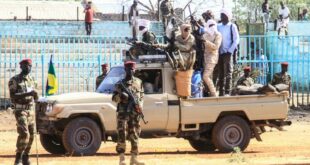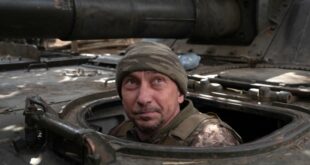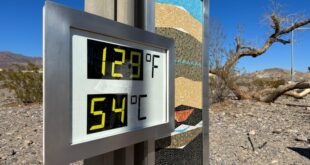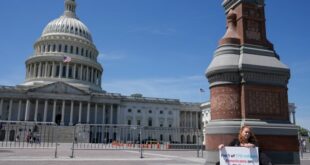Powerful quakes have killed at least 48 people and destroyed thousands of homes

A series of powerful earthquakes hit western Japan, leaving at least 48 people dead and damaging thousands of buildings, vehicles and boats, with officials warning people in some areas on Tuesday to stay away from their homes because of a risk of more strong quakes.
Aftershocks continued to shake Ishikawa prefecture and nearby areas a day after a magnitude 7.6 temblor struck the area on Monday afternoon.
Forty-eight people were confirmed dead in Ishikawa, officials said. Fourteen others were seriously injured, while damage to homes was so great that it could not immediately be assessed, they said.
Japanese media reports said tens of thousands of homes were destroyed. Government spokesperson Yoshimasa Hayashi said 17 people were seriously injured and gave a slightly lower death tally, while saying he was aware of the prefecture's tally.
Water, power and cellphone service were still down in some areas, and residents expressed sorrow about their destroyed homes and uncertain futures.
"It's not just that it's a mess. The wall has collapsed, and you can see through to the next room. I don't think we can live here anymore," Miki Kobayashi, an Ishikawa resident, said as she swept around her house.
Their house was also damaged in a 2007 quake, she said.
Japan's military dispatched 1,000 soldiers to the disaster zones to join rescue efforts, Prime Minister Fumio Kishida said Tuesday.
"Saving lives is our priority and we are fighting a battle against time," he said. "It is critical that people trapped in homes get rescued immediately."
A quake with a preliminary magnitude of 5.6 shook the Ishikawa area as he was speaking.
Firefighters were able to bring a fire under control in Wajima city that had reddened the sky with embers and smoke.
Houses collapsed, cars overturned
Nuclear regulators said several nuclear plants in the region were operating normally. A major quake and tsunami in March 2011 caused three reactors to melt and release large amounts of radiation at a nuclear plant in northeastern Japan.
News videos showed rows of collapsed houses. Some wooden structures were flattened and cars were overturned. Half-sunken ships floated in bays where tsunami waves had rolled in, leaving a muddied coastline.

On Monday, the Japan Meteorological Agency issued a major tsunami warning for Ishikawa and lower-level tsunami warnings or advisories for the rest of the western coast of Japan's main island of Honshu, as well as for the northern island of Hokkaido.
The warning was downgraded several hours later, and all tsunami warnings were lifted as of early Tuesday. Waves measuring more than one metre hit some places.
The agency warned that more major quakes could hit the area over the next few days.
People who were evacuated from their houses huddled in auditoriums, schools and community centres. Bullet trains in the region were halted, but service was being restored in some places. Sections of highways were closed, water pipes burst, and cellphone service was out in some areas.

Hundreds of aftershocks
Weather forecasters predicted rain, setting off worries about already crumbling buildings and infrastructure.
The region includes tourist spots famous for lacquerware and other traditional crafts, along with designated cultural heritage sites.
U.S. President Joe Biden said in a statement that his administration was "ready to provide any necessary assistance for the Japanese people."
Japan is frequently hit by earthquakes because of its location along the "Ring of Fire," an arc of volcanoes and fault lines in the Pacific Basin.
Over the last day, the nation has experienced about a hundred aftershocks.
*****
Credit belongs to : www.cbc.ca
 MaharlikaNews | Canada Leading Online Filipino Newspaper Portal The No. 1 most engaged information website for Filipino – Canadian in Canada. MaharlikaNews.com received almost a quarter a million visitors in 2020.
MaharlikaNews | Canada Leading Online Filipino Newspaper Portal The No. 1 most engaged information website for Filipino – Canadian in Canada. MaharlikaNews.com received almost a quarter a million visitors in 2020.







